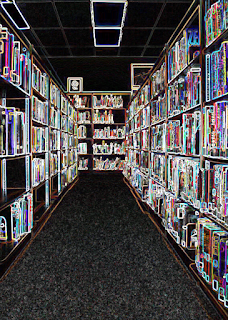Poeme'en - Poetry and Me
Weaver of his own surreal words, James Knight talks about his poetry reading experiences...
I didn't start enjoying poetry until I was in the second year of my English Literature A Level. Up until then, I'd considered all poetry dry, oblique, a puzzle not worth solving. Song lyrics were different, having an immediacy that I found exhilarating. I listened to music all the time. Although when I was a teenager (at the end of the 80s) punk was considered deader than dead, the two lyricists I most admired were John Lydon (Sex Pistols) and Jello Biafra (Dead Kennedys). Their words were bombs:
When there's no future, how can there be sin?
We're the flowers in the dustbin.
We're the poison in the human machine.
We're the future, your future!
(Sex Pistols, "God Save the Queen")
Looking at those lyrics on a page or screen is different, of course. They seem naked, even a little silly, without the support of the drums, guitars, sneering attitude. Not so poetry. If lyrics are words to music, poetry is music in words. I didn't realise that until that second year of A Level, and when I did it was thanks to William Blake, whose Songs of Innocence and of Experience I was studying. Unlike the other poems I'd been exposed to, Blake's were simple in structure and vocabulary, close to a children's nursery rhyme. They communicated directly and boldly, but not without subtlety, and there was plenty of room for interpretation. I remember heated debates in my class about the connotations of the final lines of "Nurse's Song" from Songs of Innocence:
The little ones leaped & shouted & laugh'd
And all the hills echoed.
Are these lines an expression of children's energy and spontaneity, their harmonious place in the natural order, or is there something sinister in the echoing hills? The wonderful thing about Blake's writing (here, at least; much less so in the prophetic books) is that there are no barriers to comprehension. You're never in any doubt about the situation being described, so you can enjoy the crafting and detail, and speculate about meaning without worrying that you might have got the wrong end of the stick altogether.
The next poet I loved was T S Eliot. That might sound odd, given what I've just said about simplicity and directness. Eliot is considered a fearfully difficult poet, and he's often discussed in the same breath as other formidable modernists like Ezra Pound and Virginia Woolf. His magnum opus, The Waste Land, is one of the most enigmatic poems ever written, and has been the subject of academic enquiry for over 90 years (it was published in 1922). But it's also very accessible, if you stop worrying about what what the author might be trying to say and allow yourself to enjoy the voices and images, which present patterns and echoes. Reacting emotionally and imaginatively, as you would to a dream, lets you into the heart of the poem. I have read The Waste Land dozens of times over the past 25 years, and it is a different poem every time. To paraphrase it or translate it into a rational set of meanings is to miss the point. True poetry is irreducible. It is what it is. We don't look at a painting of a mountain range and ask, "What's the message?" That's not to say it is meaningless. I just think we need to allow ourselves to respond to poetry in the same way that the children in Blake's poem react to the world around them: adventurously, emotionally.
I could reel off a long list of poets I admire. All of them write poems that create meanings without being didactic or prescriptive, and all of them look at the world through a highly subjective lens. They're also all accessible, in different ways. Pierre Reverdy was a master miniaturist who created mysterious, surreal vignettes. Allen Ginsberg hurled howling words across the page. Ted Hughes wrote brutal, beautiful nature myths. Anne Sexton laughed all the way to the mental asylum. Helen Ivory takes us into the dark corners of our own homes.
Poetry shouldn't be intimidating. A poem is simply a sequence of words, after all. If we read with an open mind, asking, "How does this make me feel?" and, if we're in an analytical mood, "Why does it make me feel like that?", the strangely familiar world of the poem should open up to us and its hills should echo with our thoughts.
Buy James Knight's own poetry on Lulu and on Amazon






Post a Comment